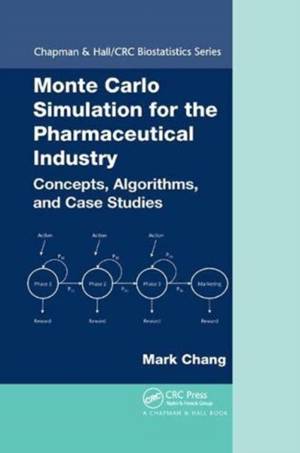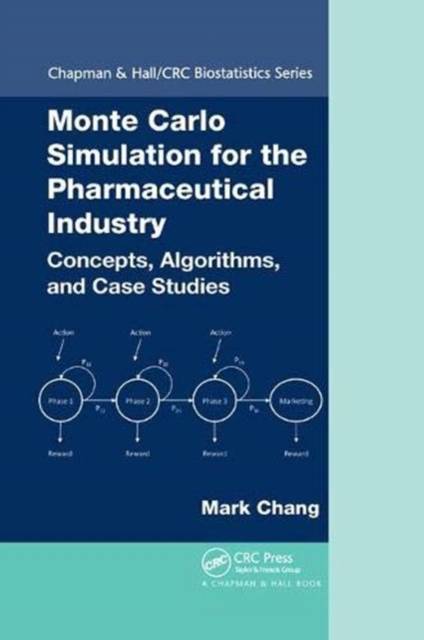
- Afhalen na 1 uur in een winkel met voorraad
- Gratis thuislevering in België vanaf € 30
- Ruim aanbod met 7 miljoen producten
- Afhalen na 1 uur in een winkel met voorraad
- Gratis thuislevering in België vanaf € 30
- Ruim aanbod met 7 miljoen producten
Monte Carlo Simulation for the Pharmaceutical Industry
Concepts, Algorithms, and Case Studies
Mark ChangOmschrijving
Helping you become a creative, logical thinker and skillful "simulator," Monte Carlo Simulation for the Pharmaceutical Industry: Concepts, Algorithms, and Case Studies provides broad coverage of the entire drug development process, from drug discovery to preclinical and clinical trial aspects to commercialization. It presents the theories and methods needed to carry out computer simulations efficiently, covers both descriptive and pseudocode algorithms that provide the basis for implementation of the simulation methods, and illustrates real-world problems through case studies.
The text first emphasizes the importance of analogy and simulation using examples from a variety of areas, before introducing general sampling methods and the different stages of drug development. It then focuses on simulation approaches based on game theory and the Markov decision process, simulations in classical and adaptive trials, and various challenges in clinical trial management and execution. The author goes on to cover prescription drug marketing strategies and brand planning, molecular design and simulation, computational systems biology and biological pathway simulation with Petri nets, and physiologically based pharmacokinetic modeling and pharmacodynamic models. The final chapter explores Monte Carlo computing techniques for statistical inference.
This book offers a systematic treatment of computer simulation in drug development. It not only deals with the principles and methods of Monte Carlo simulation, but also the applications in drug development, such as statistical trial monitoring, prescription drug marketing, and molecular docking.
Specificaties
Betrokkenen
- Auteur(s):
- Uitgeverij:
Inhoud
- Aantal bladzijden:
- 564
- Taal:
- Engels
- Reeks:
Eigenschappen
- Productcode (EAN):
- 9781138374386
- Verschijningsdatum:
- 25/10/2018
- Uitvoering:
- Paperback
- Formaat:
- Trade paperback (VS)
- Afmetingen:
- 156 mm x 234 mm
- Gewicht:
- 784 g

Alleen bij Standaard Boekhandel
Beoordelingen
We publiceren alleen reviews die voldoen aan de voorwaarden voor reviews. Bekijk onze voorwaarden voor reviews.











